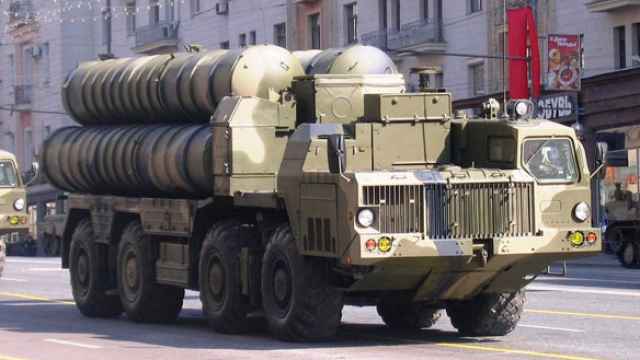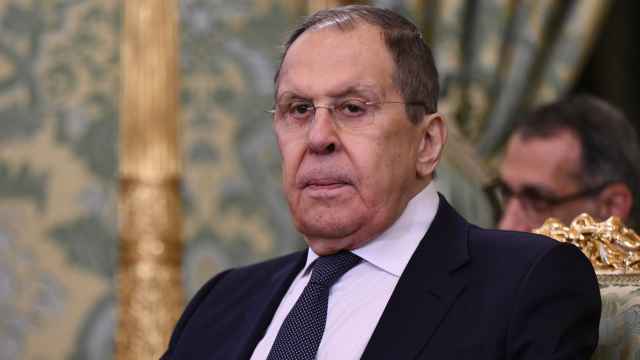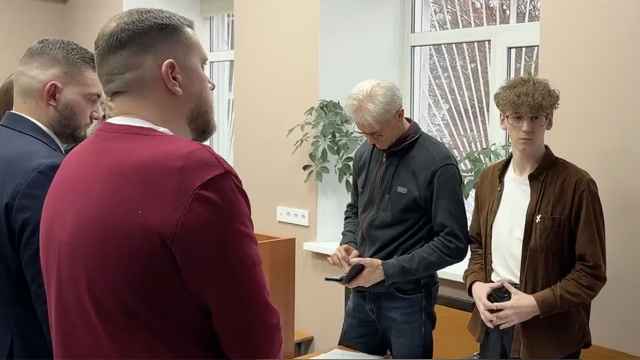UNITED NATIONS — Russia's UN ambassador said efforts to resume negotiations with Iran over its disputed nuclear program and reach a nuclear fuel-swap deal for Tehran's research reactor hold "promise" of success.
Vitaly Churkin said "useful exchanges" are taking place in capitals on restarting nuclear talks between six major powers and Iran and in Vienna on a proposal by Brazil and Turkey to exchange low-enriched Iranian uranium for higher-enriched fuel rods that can be used in the research reactor but not in nuclear weapons.
Churkin said there are two diplomatic tracks — efforts to arrange new negotiations between the key powers and Iran, which have been stalled since October 2009, and to arrange a nuclear fuel-swap.
"Both tracks have promise in bringing about a diplomatic and political solution," he told reporters at a briefing Tuesday.
Iran insists its nuclear program is purely peaceful, aimed at producing nuclear energy, but the United States and its Western allies believe Tehran's real goal is to produce atomic weapons.
Iran has come under increasing pressure from a fourth round of sanctions imposed by the UN Security Council for its refusal to suspend enrichment and resume negotiations on its nuclear program — and even tougher measures imposed by the United States, the European Union and Canada targeting the country's foreign trade, banking and energy sectors.
Last week Tuesday, Iranian President Mahmoud Ahmadinejad said nuclear talks with the major powers — the United States, Russia, China, Britain, France and Germany — would start in early September regardless of the conditions that he set in June.
The following day, the European Union's foreign policy chief Catherine Ashton, who is the chief negotiator on behalf of the six powers, called for the talks "to resume quickly" and to focus on Iran's nuclear weapons capability and approach.
Churkin said Moscow believes the Iranian nuclear dispute must be settled diplomatically — not militarily.
On the stalled nuclear negotiations, he said, "some useful exchanges and consultations have taken place and we believe that clearly we should proceed down that track."
Last week, Tehran's senior envoy to the International Atomic Energy Agency in Vienna said Iran is also ready "to go back to the negotiating table" quickly to discuss the fuel-swap proposal.
Ali Ashgar Soltanieh presented revised proposals on a possible swap to IAEA chief Yukiya Amano that were to be relayed to the United States, France and Russia, the three nations that have been engaged in a possible swap.
Churkin said Moscow supports continued talks on the swap scheme.
He noted that Russia's Foreign Ministry also has supported the idea of Brazil and Turkey "joining in expert discussions of the swap … and we are in close contact with them."
"We need all the support we can get on this matter and we think that their activity has been very helpful," Churkin said.
Among concerns by opponents of the deal is that Iran has continued to churn out low-enriched material and plans to continue running a pilot program of enriching uranium to higher levels, near 20 percent — a level from which it would be easier to move on to creating weapons-grade uranium.
A Message from The Moscow Times:
Dear readers,
We are facing unprecedented challenges. Russia's Prosecutor General's Office has designated The Moscow Times as an "undesirable" organization, criminalizing our work and putting our staff at risk of prosecution. This follows our earlier unjust labeling as a "foreign agent."
These actions are direct attempts to silence independent journalism in Russia. The authorities claim our work "discredits the decisions of the Russian leadership." We see things differently: we strive to provide accurate, unbiased reporting on Russia.
We, the journalists of The Moscow Times, refuse to be silenced. But to continue our work, we need your help.
Your support, no matter how small, makes a world of difference. If you can, please support us monthly starting from just $2. It's quick to set up, and every contribution makes a significant impact.
By supporting The Moscow Times, you're defending open, independent journalism in the face of repression. Thank you for standing with us.
Remind me later.





